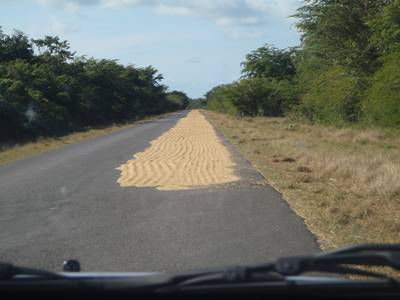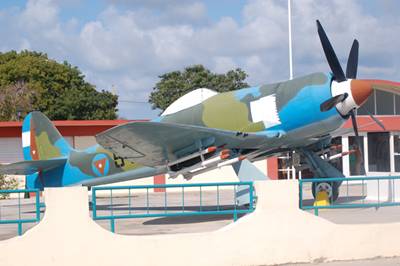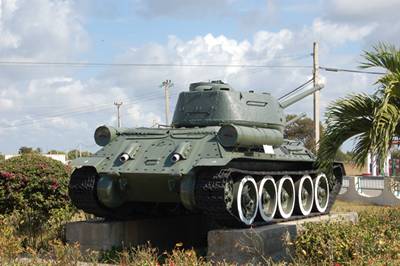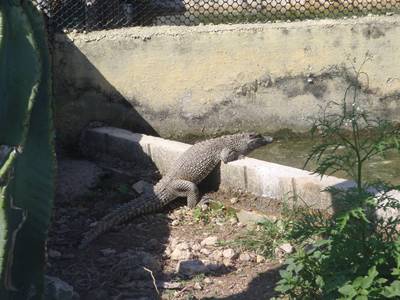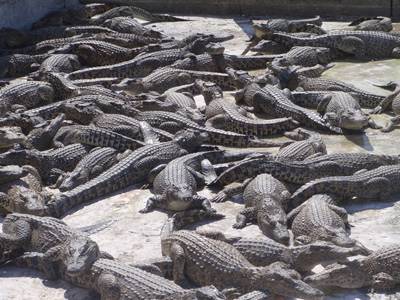Pigs and crocodiles

Friday 20th January 2012 Now here’s something you don’t see on British roads (at least I don’t think you do!) We came across this several times, and wondered what it could be. We thought at first there had been a spillage, but when we saw it again, and then again, we decided to investigate. It is rice, still in the husks, spread out on the tarmac to dry out! Only on one side of the road, though, so you can still get through in single file. Considering how little traffic we saw on these roads, it’s probably a better use for them!
Rice drying in the sun. We drove along the coast road to Playa Giron, the site of the final battle between Castro’s armed forces and the counter-revolutionary army in April 1961. Playa Giron lies at the entrance to the Bahia de Cochinos – the Bay of Pigs – which became known throughout the world when a group of Cuban exiles from the US, trained by the CIA, landed on the main beaches in the bay as US planes attacked three military bases. Castro was expecting them, however, and they were soon defeated. Although the museum here has no English on its displays, it was not hard to make out its message – Viva la Revolucion!
Outside the museum at Playa Giron. We followed the road around the bay and stopped at a crocodile farm. Here they breed Cuban crocodiles which are smaller than the American crocodile, but are in danger of extinction because they are able to interbreed with them. A proportion of the crocodiles reared here are released into the wild in the neighbouring Zapata swamp and some are used to make shoes, handbags and belts. We could have bought a stuffed one if we had so desired, but we politely declined.
A seething mass of crocodile – fortunately behind fences! Then it was back onto the Autopista and a bumpy ride back to Marina Hemingway, finding our way through Havana far more easily than on the way out. It had been an interesting couple of days during which the size of Cuba was really brought home to us. We drove several hundred miles and saw only a tiny bit of the country. We hope to see some more by boat when we sail round to the south coast. |
